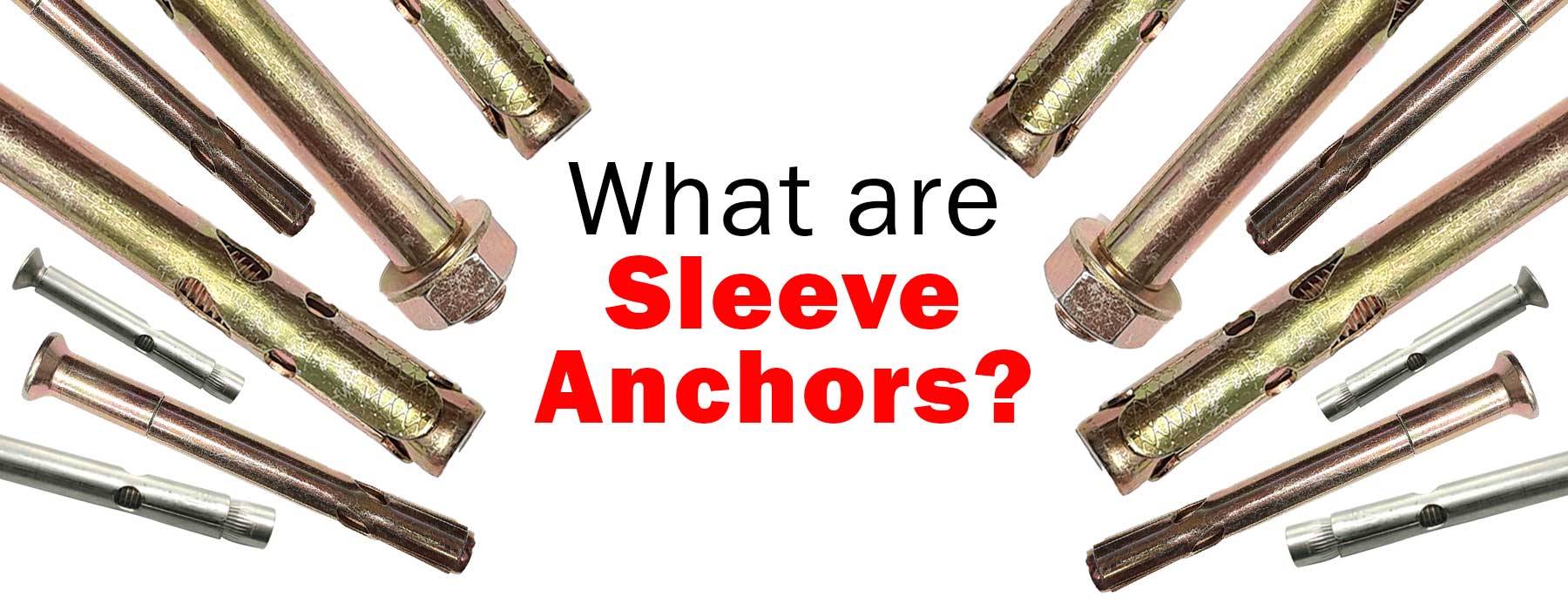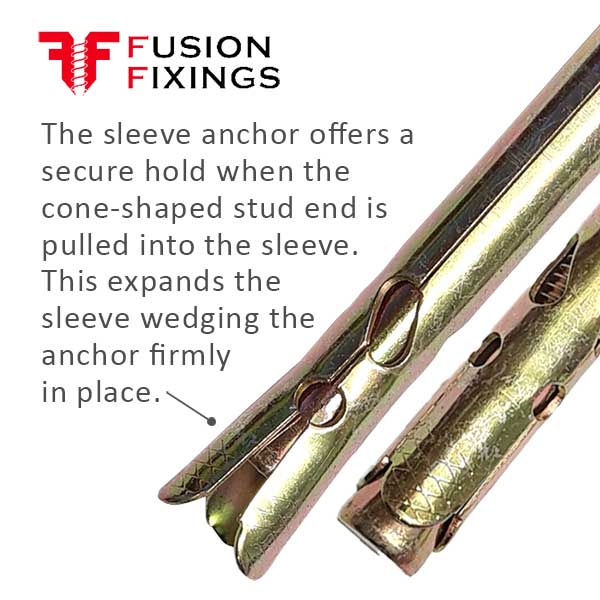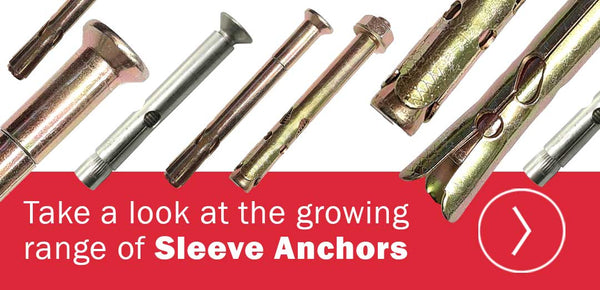
What Are Sleeve Anchors?
Simply put, sleeve anchors are a mechanical expansion fastener for use with concrete, blockwork and masonry substrates and get their name by the way they are manufactured.
At the core of the fixings is a bolt or threaded stud with an expanded cone shaped end. This is surrounded by a full-length sleeve, hence the name Sleeve Anchor.
They have been designed specifically to allow a strong and stable connection in a variety of hard materials like stone, brick, concrete, and concrete blocks.
The sleeve anchors are also designed with a selection of different head types to cater for the various job specifications and customer requirements.
If you are looking for an effective and secure hold in masonry and concrete, then the sleeve anchors are designed to get the job done.
How do sleeve anchors work?
The process by which the sleeve anchors can offer a secure hold is simple but effective. The secure hold is achieved by the expansion of the sleeve against the walls of the hole it is placed into.
When the operator tightens the fixing the centre bolt, with its expanded cone shaped end, is pulled up through the sleeve which in turn expands the sleeve against the walls of the pre-drilled hole.

A simple but highly effective process that can ensure an effective long-lasting hold, but the 2 points below are a vital part of ensuring a secure hold and should be considered.
Using the correct hole for the sleeve anchors
Sleeve anchors can offer an extremely effective hold but using the correct hold size is of vital importance. Being a friction-based fastener, ensuring that the correct diameter and depth of hole is vital to ensuring a long last hold.
If the hole is too deep or too wide this can weaken the hold the expanded sleeve has on the walls of the hole which will increase the chance the anchor could come loose over time.
The correct hole width and depth must be a vital consideration when using the sleeve anchors to give the fixings the best chance of being an effective long-term hold.
For added peace of mind, it is advised to use a small amount of epoxy to hold the anchors in place, which adds additional help to ensure that a secure hold is achieved every time.
Cleaning the holes ready for the sleeve anchors
As with ensuring that the correct hole width and depth is used, ensuring the hole is clean is also an important part of its installation that is often overlooked.
Sleeve anchors are a friction-based fixing that needs a secure bond between the material and the expanded sleeve. Cleaning the hole effectively will ensure that the anchor will have a maximum hold and be clear of debris caused by drilling.
For the most effective method of cleaning the pre-drilled holes is with a blow-out pump which ensures that the maximum amount of debris is removed.
Being a reliable and robust fixings, if the correct sleeve anchor is used and installed correctly, they can offer an extremely effective means of attaching assorted items to harder substrates.
Where to buy sleeve anchors at competitive prices?
Fusion Fixings is a family run business with over 40 years’ experience in the construction and fasteners industry. Our goal is to build a comprehensive range of fixings and fasteners at competitive prices.
Here at Fusion Fixings the sleeve anchors are available in various materials and finishes, including A2 stainless steel, A4 stainless steel, and zinc and yellow plated.
A broad range that caters to different project requirements and environmental conditions.
Sleeve anchors are a versatile and essential component in construction and renovation projects, providing a reliable means of anchoring objects to solid masonry surfaces.
Used correctly they can offer a reliable, long lasting hold and are used by both professionals and competent DIY enthusiasts alike.

